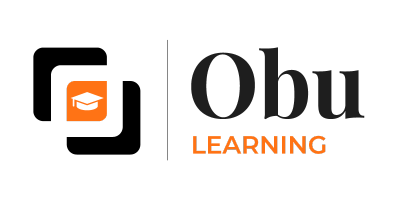Recruitment, Interviewing, and Emotional Intelligence
Conducting a good recruitment interview is hard. It is much harder than people expect, and the process often fails with the wrong type of person hired. They are either a bad fit for the job, or unable to do it. This is a big drain on resources with costs upwards of $75,000.
Using intuition to tell whether someone will be good at a job just doesn’t work and has proven to be wrong in practice again and again.
In order to hire the right people into your organisation, your interview process must be reliable, consistent and fair. However, interviewing is more than just a process. You are looking to hire people with hopes, desires and aspirations for the future. Beyond engaging with the task of interviewing is the understanding of how people engage with the process.
Recruiting and interviewing is not merely turning the handle of a machine to produce a widget. You are engaging the services of an experience, talented person interested in growing their career.
As businesses continue to turn to automation and artificial intelligence to improve and streamline their hiring process, human connection becomes even more so important. Recruitment cannot be automated as establishing meaningful and human relationships with candidates cannot be replaced by technology.
Everyone is busy and is involved working through challenges. Recruitment and selection interviews are part of a two way process. There is no excuse for ignoring this and the fact that you are dealing with people. You are making decisions that could have a major influence on their lives.
What if emotional intelligence was applied to this fundamental and vitally important process? It’s not hard but it is so easily overlooked.
You need to be able to apply your thinking with your emotions to authentically engage with people at every stage of the process so that you can make good quality decisions that will enhance you, your reputation and your performance. Doing this well, will ensure that you hire talent and can use this to everyone’s advantage.
You also need to effectively work with the emotions of the candidates you are interviewing to give them a good experience that is consistent, fair and well managed leaving them feeling that you have been empathetic and that you have valued their input.
Companies with staff who have higher levels of emotional intelligence have 63% less turnover than companies with lower levels of emotional intelligence. Emotionally intelligent recruiters are more likely to identify and hire emotionally intelligent candidates faster, resulting in a cohesive, productive, and collaborative work culture.
Increasing companies are looking to assess and recruit for candidates who have emotional intelligence but, often, overlook the need to demonstrate this themselves within the hiring process. They also assume that their organisation itself is practising behaviours that indicate high levels of emotional intelligence.
This highly practical course is unusual because it considers emotional intelligence as a fundamental part of recruiting and interviewing. The course provides a step-by-step approach to applying emotional intelligence principles to your recruitment and selection process.
The course will help you to develop your skills in asking questions, listening, preparing interviews and conducting them underpinned with emotional intelligence to support everyone in the process. As a result, it will help you to ensure those that you don’t hire feel that they have been understood, treated well and fairly but, more importantly, it will help you to make sure you’re recruiting the very best people into your organisation.
Within this course, you learn about
- A process to help make your recruitment as efficient and as effective as possible
- Online and offline options for attracting and sourcing candidates
- What to include in a job advert to make it informational yet appealing
- How to avoid discrimination and ensure inclusivity at every stage of the process
- Ways of drawing up accurate job descriptions and profiles to define your ideal candidate
- Identifying the behavioural competencies required to be successful in the role
- Planning and structuring the interview
- Compiling a list of competency-based questions to test for candidate suitability
- Determining how to sell the role and the organisation to interested candidates
- Creating a welcoming environment – virtually and in-person
- The art of questioning and active listening in interviews
- What information to record during the interview
- Reviewing candidate qualities, attributes and skills against the job criteria
- Selecting the right person for the job
- The importance of communication at all stages of the recruitment process – internally and externally.
but, most critically, how to do all of these with emotional intelligence!
The course is being continually refined and updated to ensure it remains current and relevant. Feedback is always welcome.
Course Curriculum
1. Introduction to the Course
-
1. Recruitment, Interviewing and Emotional Intelligence Intro
02:27 -
2. Recruitment, Interviewing, and Emotional Intelligence – Learning Outcomes
03:37 -
3. Reflecting about this Course
00:00
2. What is Emotional Intelligence
-
1. Emotional Intelligence in Recruitment and Interviewing
02:15 -
2. Defining Emotional Intelligence
04:51 -
3. Insight into Emotions
02:08 -
4. Emotions and Emotional Intelligence at Work
05:59 -
5. Working with the Emotional Climate
03:06 -
6. Emotions and Recruitment
01:55
3. Knowing what you Need and Getting it Right
-
1. A Simple Recruitment Process
01:40 -
2. The Aims and Benefits of Recruitment
01:16 -
3. Creating a Job Profile
04:44 -
4. Steps in the Recruitment Process
03:59 -
5. Recruitment and the Law
04:17 -
6. Being Aware of Bias
02:28 -
7. Considerations around Bias
02:54
4. Attracting and Assessing the Right Candidates
-
1. Advertising the Role
03:36 -
2. Inspiring Job Adverts
01:54 -
3. Advertising Channels
05:55 -
4. Reviewing CVs
01:41 -
5. Preparing the Interview
04:11
5. Making the Interview Work
-
1. Types of Interview
03:32 -
2. Interviewing in a Professional Manner
01:35 -
3. Interview Questioning Techniques
06:59 -
4. Interview Questions to Ask
03:24 -
5. Interview Questions Checklist
00:00 -
6. Competency-based Interviews
02:39 -
7. Competency-Based Questions Checklist
00:00 -
8. Questioning and Listening in Interviewing
03:32 -
9. Active Listening in Recruitment
02:13 -
10. Assessing your Listening Skills
00:00 -
11. Questions You May Be Asked During The Interview
02:14 -
12. Bias in Recruitment
04:25 -
13. Taking Notes
01:11 -
14. A Process for Note Taking and Interview Questioning
02:55 -
15. Second Interviews
04:51 -
16. Further Legal Considerations
02:00
6. Virtual Interviews
-
1. Virtual Interviewing Introduction
01:33 -
2. Considerations Around Virtual Interviewing
03:10 -
3. Further Considerations Around Virtual Interviews
02:06 -
4. Conducting a Virtual Interview
02:51 -
5. After the Virtual Interview
01:41 -
6. Virtual Interviewing Conclusion
01:25
7. Offering the Position to a Successful Candidate
-
1. Evaluating the Results
01:56 -
2. Making a Job Offer
02:20 -
3. Unsuccessful Candidates
03:22 -
4. Once The Offer Has Been Accepted
01:46
8. Conclusion to the Course
-
1. Emotional Intelligence in Recruitment
05:39 -
2. Artificial Intelligence, Emotional Intelligence and Recruitment
05:25 -
3. Do_s and Dont_s – Recruitment, Interviewing and Emotional Intelligence
03:27 -
4. Learning Review
00:00

-
LevelAll Levels
-
Total Enrolled2
-
Duration3 hours
-
Enrollment validityEnrollment validity: 3 days
-
CertificateCertificate of completion

What I will learn?
- Recognise ways that emotional intelligence underpins effective recruitment.
- Describe the structured process for interviewing and selecting quality candidates.
- Discover how to create a job description and profile to fulfil the requirements of the role to define your ideal candidate.
- Outline plans to conduct interviews either face-to-face or virtually.
- Identify different types of questions and which ones to avoid in an interview.
- Explain and sell the opportunity to interested candidates.
- Determine how to represent your organisation and ways to answer to candidates’ questions effectively.
- Evaluate candidates based on interview performance to make quality decisions that reflect your organisation’s values.
- Consider the needs, values, and emotions of applicants with understanding and empathy.
- Select talented individuals for your roles with confidence and emotional intelligence.
Target Audience
- Anyone who needs to recruit and conduct interviews to fill positions in their business.
- Anyone who would like to understand best practice techniques to ensure they hire the right candidates.
- Anyone who is interested in a basic understanding of why emotions play an important role in performance and success.
- Anyone who wants to have a deeper understanding of themselves and how to work better with other people.
- Anyone interested in learning more about emotional intelligence in recruitment and selection.
Recruitment, Interviewing, and Emotional Intelligence
Conducting a good recruitment interview is hard. It is much harder than people expect, and the process often fails with the wrong type of person hired. They are either a bad fit for the job, or unable to do it. This is a big drain on resources with costs upwards of $75,000.
Using intuition to tell whether someone will be good at a job just doesn’t work and has proven to be wrong in practice again and again.
In order to hire the right people into your organisation, your interview process must be reliable, consistent and fair. However, interviewing is more than just a process. You are looking to hire people with hopes, desires and aspirations for the future. Beyond engaging with the task of interviewing is the understanding of how people engage with the process.
Recruiting and interviewing is not merely turning the handle of a machine to produce a widget. You are engaging the services of an experience, talented person interested in growing their career.
As businesses continue to turn to automation and artificial intelligence to improve and streamline their hiring process, human connection becomes even more so important. Recruitment cannot be automated as establishing meaningful and human relationships with candidates cannot be replaced by technology.
Everyone is busy and is involved working through challenges. Recruitment and selection interviews are part of a two way process. There is no excuse for ignoring this and the fact that you are dealing with people. You are making decisions that could have a major influence on their lives.
What if emotional intelligence was applied to this fundamental and vitally important process? It’s not hard but it is so easily overlooked.
You need to be able to apply your thinking with your emotions to authentically engage with people at every stage of the process so that you can make good quality decisions that will enhance you, your reputation and your performance. Doing this well, will ensure that you hire talent and can use this to everyone’s advantage.
You also need to effectively work with the emotions of the candidates you are interviewing to give them a good experience that is consistent, fair and well managed leaving them feeling that you have been empathetic and that you have valued their input.
Companies with staff who have higher levels of emotional intelligence have 63% less turnover than companies with lower levels of emotional intelligence. Emotionally intelligent recruiters are more likely to identify and hire emotionally intelligent candidates faster, resulting in a cohesive, productive, and collaborative work culture.
Increasing companies are looking to assess and recruit for candidates who have emotional intelligence but, often, overlook the need to demonstrate this themselves within the hiring process. They also assume that their organisation itself is practising behaviours that indicate high levels of emotional intelligence.
This highly practical course is unusual because it considers emotional intelligence as a fundamental part of recruiting and interviewing. The course provides a step-by-step approach to applying emotional intelligence principles to your recruitment and selection process.
The course will help you to develop your skills in asking questions, listening, preparing interviews and conducting them underpinned with emotional intelligence to support everyone in the process. As a result, it will help you to ensure those that you don’t hire feel that they have been understood, treated well and fairly but, more importantly, it will help you to make sure you’re recruiting the very best people into your organisation.
Within this course, you learn about
- A process to help make your recruitment as efficient and as effective as possible
- Online and offline options for attracting and sourcing candidates
- What to include in a job advert to make it informational yet appealing
- How to avoid discrimination and ensure inclusivity at every stage of the process
- Ways of drawing up accurate job descriptions and profiles to define your ideal candidate
- Identifying the behavioural competencies required to be successful in the role
- Planning and structuring the interview
- Compiling a list of competency-based questions to test for candidate suitability
- Determining how to sell the role and the organisation to interested candidates
- Creating a welcoming environment – virtually and in-person
- The art of questioning and active listening in interviews
- What information to record during the interview
- Reviewing candidate qualities, attributes and skills against the job criteria
- Selecting the right person for the job
- The importance of communication at all stages of the recruitment process – internally and externally.
but, most critically, how to do all of these with emotional intelligence!
The course is being continually refined and updated to ensure it remains current and relevant. Feedback is always welcome.

-
LevelAll Levels
-
Total Enrolled2
-
Duration3 hours
-
Enrollment validityEnrollment validity: 3 days
-
CertificateCertificate of completion

-
Curriculum
-
Benefits
-
Target Audience
1. Introduction to the Course
-
1. Recruitment, Interviewing and Emotional Intelligence Intro
02:27 -
2. Recruitment, Interviewing, and Emotional Intelligence – Learning Outcomes
03:37 -
3. Reflecting about this Course
00:00
2. What is Emotional Intelligence
-
1. Emotional Intelligence in Recruitment and Interviewing
02:15 -
2. Defining Emotional Intelligence
04:51 -
3. Insight into Emotions
02:08 -
4. Emotions and Emotional Intelligence at Work
05:59 -
5. Working with the Emotional Climate
03:06 -
6. Emotions and Recruitment
01:55
3. Knowing what you Need and Getting it Right
-
1. A Simple Recruitment Process
01:40 -
2. The Aims and Benefits of Recruitment
01:16 -
3. Creating a Job Profile
04:44 -
4. Steps in the Recruitment Process
03:59 -
5. Recruitment and the Law
04:17 -
6. Being Aware of Bias
02:28 -
7. Considerations around Bias
02:54
4. Attracting and Assessing the Right Candidates
-
1. Advertising the Role
03:36 -
2. Inspiring Job Adverts
01:54 -
3. Advertising Channels
05:55 -
4. Reviewing CVs
01:41 -
5. Preparing the Interview
04:11
5. Making the Interview Work
-
1. Types of Interview
03:32 -
2. Interviewing in a Professional Manner
01:35 -
3. Interview Questioning Techniques
06:59 -
4. Interview Questions to Ask
03:24 -
5. Interview Questions Checklist
00:00 -
6. Competency-based Interviews
02:39 -
7. Competency-Based Questions Checklist
00:00 -
8. Questioning and Listening in Interviewing
03:32 -
9. Active Listening in Recruitment
02:13 -
10. Assessing your Listening Skills
00:00 -
11. Questions You May Be Asked During The Interview
02:14 -
12. Bias in Recruitment
04:25 -
13. Taking Notes
01:11 -
14. A Process for Note Taking and Interview Questioning
02:55 -
15. Second Interviews
04:51 -
16. Further Legal Considerations
02:00
6. Virtual Interviews
-
1. Virtual Interviewing Introduction
01:33 -
2. Considerations Around Virtual Interviewing
03:10 -
3. Further Considerations Around Virtual Interviews
02:06 -
4. Conducting a Virtual Interview
02:51 -
5. After the Virtual Interview
01:41 -
6. Virtual Interviewing Conclusion
01:25
7. Offering the Position to a Successful Candidate
-
1. Evaluating the Results
01:56 -
2. Making a Job Offer
02:20 -
3. Unsuccessful Candidates
03:22 -
4. Once The Offer Has Been Accepted
01:46
8. Conclusion to the Course
-
1. Emotional Intelligence in Recruitment
05:39 -
2. Artificial Intelligence, Emotional Intelligence and Recruitment
05:25 -
3. Do_s and Dont_s – Recruitment, Interviewing and Emotional Intelligence
03:27 -
4. Learning Review
00:00
- Recognise ways that emotional intelligence underpins effective recruitment.
- Describe the structured process for interviewing and selecting quality candidates.
- Discover how to create a job description and profile to fulfil the requirements of the role to define your ideal candidate.
- Outline plans to conduct interviews either face-to-face or virtually.
- Identify different types of questions and which ones to avoid in an interview.
- Explain and sell the opportunity to interested candidates.
- Determine how to represent your organisation and ways to answer to candidates’ questions effectively.
- Evaluate candidates based on interview performance to make quality decisions that reflect your organisation’s values.
- Consider the needs, values, and emotions of applicants with understanding and empathy.
- Select talented individuals for your roles with confidence and emotional intelligence.
- Anyone who needs to recruit and conduct interviews to fill positions in their business.
- Anyone who would like to understand best practice techniques to ensure they hire the right candidates.
- Anyone who is interested in a basic understanding of why emotions play an important role in performance and success.
- Anyone who wants to have a deeper understanding of themselves and how to work better with other people.
- Anyone interested in learning more about emotional intelligence in recruitment and selection.
